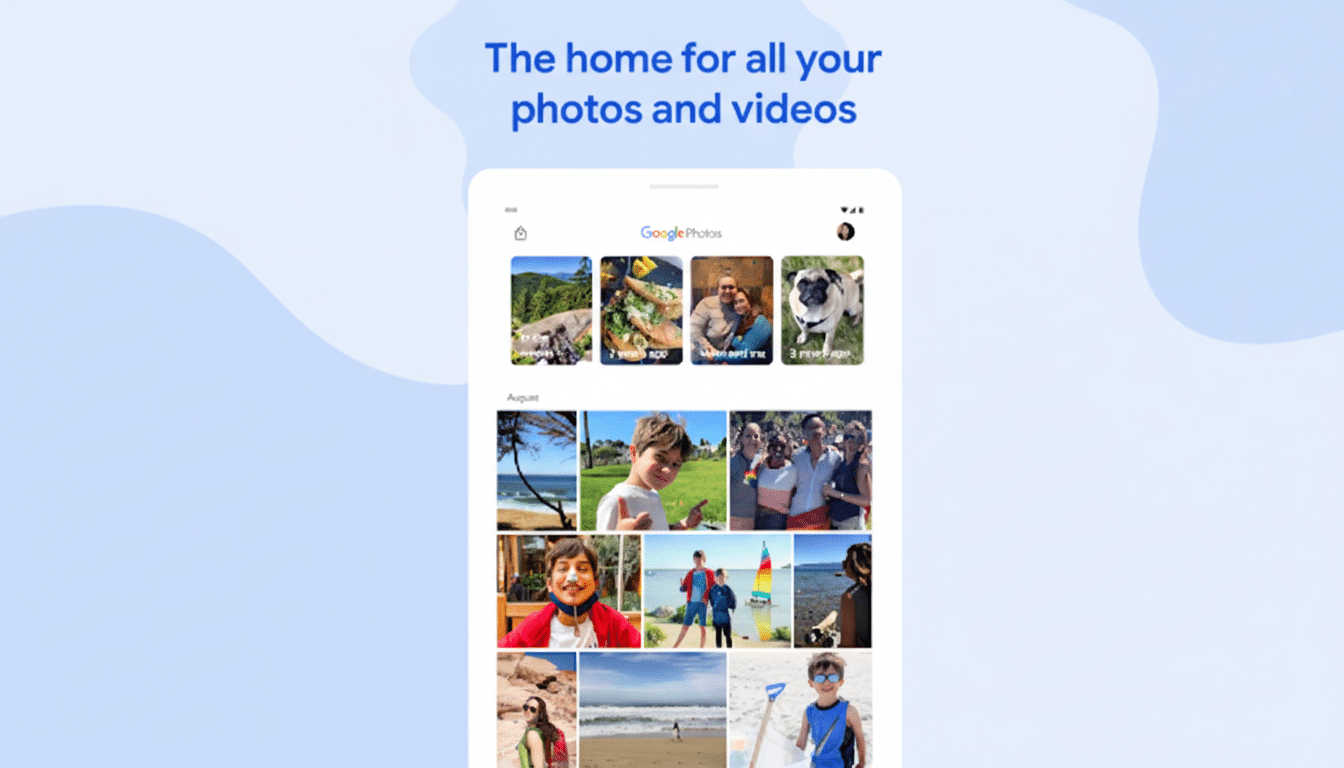Google has introduced a significant update to Google Photos, leveraging generative AI to support prompt-based editing for faces and objects (a new Ask button that understands natural language requests), AI suggestions in existing creations and expanded style-creation templates, as well as a broadening of search capacity through its Google Photos search engine, now available in over 100 countries and more than 17 languages.
The updated toolkit makes its way to more users, including on iOS in the U.S., with new features that first launched in preview on Pixel 10 and an improved editor made for fast, guided edits. Combined, the features are designed to help make finding, fixing and transforming photos quicker for normal people who aren’t editing pros.
- What’s new in Google Photos: editor and prompts update
- Ask button adds natural language control and search
- AI templates and the Nano Banana model power styling
- The global expansion of AI search in Google Photos
- Availability and rollout for iOS, Android, and regions
- Why it matters for everyday Google Photos users
- Early use cases and caveats for AI in Google Photos

What’s new in Google Photos: editor and prompts update
Voice and text descriptions are now supported for prompt-based editing. Since Photos knows who’s who through face groups, you can direct edits to specific individuals in a scene. Think commands like “lift Riley’s glasses, open my eyes, make Anya smile” — all in one swoop and with irreversible effects.
Google is also rethinking the editor to surface common actions and AI recommendations — such as cutting down on clicks for fixes like lighting, background cleanup or portrait tweaks. The idea is to supplant tool-by-tool fiddling with intent-driven guidance.
Ask button adds natural language control and search
The new Ask button is the go-to place to get AI assistance. You can ask for information about a photo, bring up related moments or even start an edit with simple language. Suggestion chips show what’s possible — “brighten the sky,” for instance, or “find photos from our trip to Tokyo at night.”
By combining retrieval and editing under one conversational entry point, Google is betting that users will depend less on nested menus and more on everyday language to navigate and clean up their libraries.
AI templates and the Nano Banana model power styling
Google is integrating its Nano Banana image model into Photos, enabling playful makeovers. AI templates can transform a lone shot into certain styles — a Renaissance portrait, comic strip frame, retro studio portrait or action-figure box art — without writing a lengthy prompt.
These single-tap conversions will appear within the Create tab first — on Android, initially in the U.S. and India, where Google notes it saw Nano Banana performing best. It’s a consumer-friendly spin on generative styling that was designed to be quickly shared around social media.
The global expansion of AI search in Google Photos
First introduced in the U.S., AI-powered search is coming to Photos across the globe, including countries such as Argentina, Australia, Brazil, Chile, Colombia, India, Indonesia, Japan, Mexico, New Zealand and Saudi Arabia.
Support is growing to over 17 languages, including Arabic, Bengali, French, German, Hindi, Indonesian, Italian, Japanese, Portuguese and Spanish.

The pragmatic payoff is multilingual, context-sensitive retrieval. Users can describe the things they remember — “our beach trip in the rain,” “the birthday with the red cake,” or “dog in snow 2019” — and have relevant moments surface without performing manual tagging.
Availability and rollout for iOS, Android, and regions
AI editing prompts and the revamped editor are coming soon to iOS in the U.S. The Ask button is available now to U.S. users on iPhones and Android devices. AI templates driven by Nano Banana will start rolling out next week on Android devices in the United States and India. AI search is rolling out globally in stages, and language support will be added as it arrives in more regions.
Edits in Google Photos are nondestructive, meaning that the originals stay intact. Face grouping and its ability to make person-specific tweaks is a preferential feature, easily switched off in settings for those who don’t like the idea of having faces clustered together.
Why it matters for everyday Google Photos users
With over 1B users, Google Photos is one of the world’s largest private photo libraries. If conversational editing and multilingual search are embedded into that default gallery again, it could be the start of a shift in how regular users approach managing visual memories — less manual curation, more “tell it what you want.”
The update also comes as competitors are making a mad dash. Andy Jassy, the head of Amazon Web Services, which is estimated to be five times bigger than Microsoft’s cloud division — known as Azure — has become more vocal and is sounding much deadlier on pricing in recent months. Generative Remove is now live in Lightroom, and Samsung’s recent Galaxy AI features enable object-level edits for some older devices. Google’s edge is that it has already tightly integrated with a library that exists, and search quality and personalization again drive consumption.
Early use cases and caveats for AI in Google Photos
For families, person-aware prompts can rescue near-miss shots — with a closed eye opened or an expression softened — while templates provide immediate keepsakes and social-ready looks. An entire “scene” — whether it’s as broad as a country or one that is lesser-known but worth visiting — can be discovered more quickly by travelers who use natural language, so they don’t waste time scrolling through images.
As with any kind of generative tool, authenticity is important. Changing words and deleting objects can further fuzz the distinction between documentation and creation. Industry organizations like the Coalition for Content Provenance and Authenticity work to promote clearer signals of provenance; users might consider tagging heavily edited images when context matters.
Expect some misses: complex occlusions, fine detail around glasses or hair, and busy backgrounds can pose difficulties for AI models. Toss in your Ask entry point and some multilingual search, and Photos inches closer to a conversational, AI-first camera roll — one that’s savvy not only about what’s in your pictures but also about what you want to do with them.

